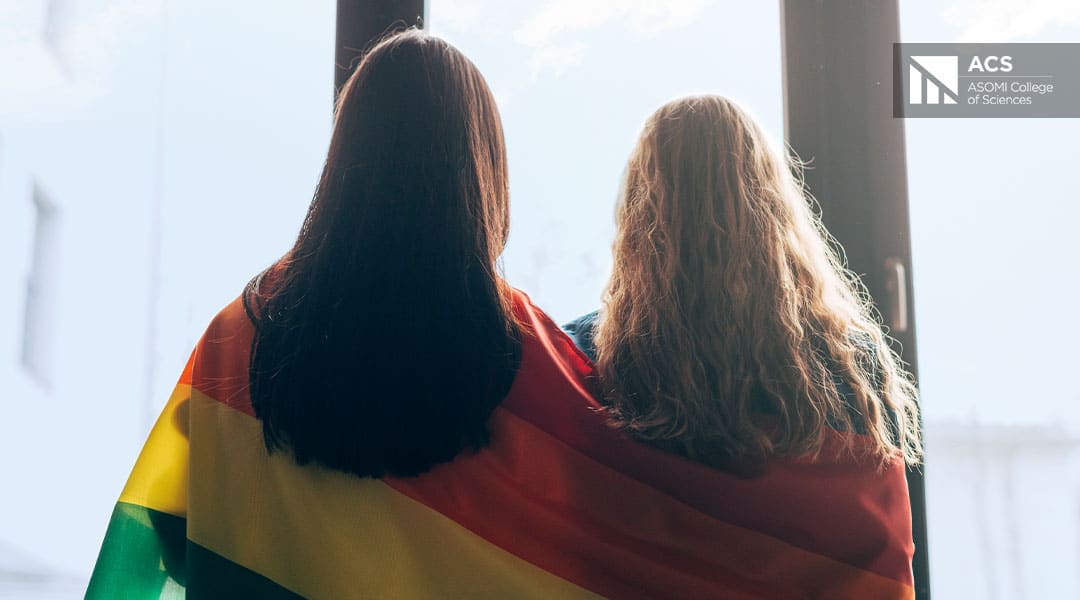Since many students, unfortunately, do not have the chance of being open with their families about being LGBT, the higher education institution they go to can become a place where they can express their identity safely. This article shares an overview of the difficulties these students may face and practical solutions for the inclusion of the LGBT community in higher education institutions.
LGBT students should be allowed to grow and gain experience in the university or college they attend. However, still, a lot of LGBT students are being discriminated against or abused for their sexual orientation. Higher education institutions should embed LGBT in their practices and provision, ensuring their inclusion in the university or college community. It might become an excellent way to attract talented LGBT students and make the institution’s student (and staff) body more diverse.
The difficulties faced by LGBT students
There are some standard features that LGBT students may face that do not make them feel at their ease while attending a higher education institution. Harassment, bullying, and violence in universities and colleges might occur during the lessons and at any other moment on-campus sites. The abusing people might be part of the student corpus as well as staff. When LGBT students are accessing services such as counselling services, they might feel confused. They might even be excluded from sports and other gender-based activities; this might be especially embarrassing to trans students.
The lack of gender-neutral options and non-inclusive options for title, gender and marital status when registering to university or a college represent issues that LGBT students have to face often. Therefore, the processes for changing university or college, course or other details might become confusing and complicated. Concerns about the workplace due to the lack of LGBT-specific career advice and even the fear of undertaking studies, especially in LGBT hostile countries, are a few concerns these students have to face in modern and supposedly advanced higher education institutions.

Monitoring and consultation
For a complete understanding of the difficulties LGBT students have to put up with, universities and colleges should put in-depth monitoring and consultation services at the disposal of LGBT students. For the inclusivity of LGBT students and staff, higher education institutions should make an in-depth analysis to find out the concerns and difficulties faced by LGBT people. This analysis should not only concern the educational sphere, as many individuals might have problems with their families or other everyday scenarios. So, one of the first things to do, besides analysing the situation with quantitative and anonymous data, is to establish a service that offers psychological help to those in need.
Moreover, there should also be monitoring progress; for instance, higher education institutions should organise anonymous questionnaires asking about access, retention, satisfaction and attainments of LGBT students. Of course, this kind of survey should include different data for each group – it helps compare, for example, how is the situation for lesbian students and trans learners? Higher education institutions should also analyse data compared to other minorities as, for instance, black or Asian LGBT students might be different from white ones.
The institutions should do the abovementioned surveys by collaborating with the LGBT student assembly and support groups. Moreover, universities and colleges should give a voice and try to include those who do not participate actively in these groups. Besides that, the institutions should find out whether LGBT students have difficulties using other services provided by the institution, such as tutoring services or even the services for students with disabilities. That could help facilitate the access of LGBT students to all the facilities that the institution offers, as often these students do not feel safe to benefit from all these services.
Higher education institutions should share the findings of these surveys with the university staff and with senior university leaders and governors. This move should avoid further discrimination from students and the team as well. For a more significant impact, institutions should share the findings with local and regional authorities to try to help the LGBT community altogether.
In other words
LGBT students may face a lot of difficulties that vary in genre and impact. Anyhow, with the proper monitoring and consultation services, universities and colleges can improve this situation. ACS – ASOMI College of Sciences pays extreme attention to the LGBT community and the inclusion of students based on gender-neutral principles and regardless of their sexual orientation and cultural background.




